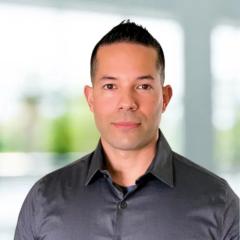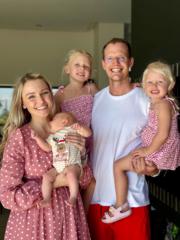
Write something
Creating a Treasury Engine for Multifamily Assets — Looking for Operator Input
Hi everyone — I’m building a Fintech system specifically for multifamily owners/operators that does 3 things: 1. Gives you a real-time, accurate cash picture— rent coming in— payables due— timing gaps— when you’ll run tight 2. Helps you optimize vendor payments— which invoices to pay today— which to defer (safely, without damaging vendor relationships)— how to stretch liquidity during capex or unexpected expenses 3. Predicts delinquency earlier— identifies tenants who are likely to pay late next month— gives you a simple intervention workflow Long-term vision:A treasury/credit engine for property operators, not a rent-app clone. - No gimmick rewards. - No “earn crypto on rent.” - No consumer fintech distraction.Just tools that make properties financially stronger. Before we finalize our build:Which problem costs you the most time or money today? A) Delinquent tenants B) Vendor payments and liquidity timing C) Not knowing your real cash position at any moment Any feedback is massively appreciated — this is 100% for product validation before engineering.— Nickson (Naltos)
We Almost closed on an $18M Deal — here's why we walked away.
It was the end of August. We spent about 6 months working on a deal. Got it under contract. It looked like a home-run. $18M purchase price. 104 doors. Great submarket in Phoenix. Numbers lined up. We toured the property in person, walked every building. Everything looked good. But during due diligence, we found out the roofs the seller said were "brand new" weren't. They were shot. Full replacement needed. That changed everything. We went back to the seller and asked for a credit to cover the cost. They said no. We tried to make it work, but at the end of the day, it just didn't make sense. Moving forward would've meant putting our investors' capital at risk and hoping we could make up the difference later. That's not how we operate. So we walked away. Was a tough pill to swallow. We'd spent hundreds of hours on that deal and paid for all the third-party reports. But it was the right call. Sometimes protecting capital means walking away from a deal you really wanted. Here's what that experience reminded me of: - Don't fall in love with a deal. Fall in love with your standards. - Due diligence isn't just paperwork. It's how you protect your people. - And when in doubt, choose discipline over emotion. We lost some time and money on that one, but honestly it made us sharper. Our process is tighter, our team's stronger, and our conviction in what we stand for is even clearer. Sometimes the best deals are the ones you don't close.
How YouTube Helped Me Scale Into Multifamily Real Estate
First, a huge thank you to this community 🙏. The strategies, insights, and advice shared here on multifamily investing are invaluable for anyone serious about building wealth in this space. A bit about my journey: I was stuck in a 9–5 job, trying to figure out how to create financial freedom. I started a YouTube channel as a side hustle, sharing content and uploading consistently—but growth was slow, and I wasn’t seeing results. Everything changed when I connected with a YouTube growth specialist. Within a few months, my channel grew from 400 subscribers to 4,000, and today it has over 400,000 subscribers, generating passive income every month. The real game-changer? I used YouTube as a platform to scale my multifamily investments. By treating it like a business, I could: 🏢 Share content that reached potential partners and investors 🏢 Fund new deals with passive income from the channel 🏢 Avoid costly mistakes by learning from the audience and experts 🏢 Build systems that made investing and operations more efficient The biggest lesson: multifamily investing, like YouTube, is a business. Treat it strategically, implement systems, and leverage the right guidance—and your growth multiplies. For anyone here: combining online platforms with smart multifamily strategies can accelerate your path to financial freedom while minimizing risks.
Our Toughest Deal Refinances to Agency - 3 years in the making
This was the most difficult project in our career, and I’m proud of this story of perseverance and ultimately preservation of capital. In a time where there is much negativity towards Syndications and multifamily, this story hopefully gives hope to the operators out there doing the right thing, giving every bit of smarts and execution to protect capital. This story is a save. I don’t know many other operators that would have been able to pull off what we did and the challenges we faced, how we survived and thrived. Our strength as GP guarantors at Sharpline, our track-record, our relationships with Freddie and Fannie were the key. It’s a testament to Sharpline and the commitment of our team as well as the patience and belief from our investors. I want this post to be a reality check and not considered bragadocious but give homage to the people in Sharpline and the many partners (lenders, vendors, consultants, investors) that helped get this insurmountable project to where it is today. Here we go. 3 years ago we bought this as a heavy value-add post covid. We couldn’t get new roofs that were leaking for 7 months, so this inhibited our reposition to improve the property, which kept some of the bad elements at the community there longer than we wanted. Fire property management company 1 , Fire property management company 2 (proverbial jump out frying pan into the fire, scary). Decided to self-manage project. This was in an early stage of our self-management journey about 2 years ago (we now self-manage 1500+ units). We purchase one half of the project with cash and the other with a bridge loan with floating rate debt (our only floating rate Sharpline has ever done, we didn’t buy a rate cap either, not smart) 4% bridge loan. We begin to execute capex plan successfully (we ripped the mansards off #MansardSlayer). The process of reposition took longer than we liked because of construction delays and bad PM companies, but we ultimately had the safety net of the 24 unit townhouse project that was getting higher occupancy that we purchased with cash as part of the syndication. So we refi’d the 24 unit with a local bank and GPs personally guaranteed the loan as we continued to do projects. This allowed us to free up liquid capital to continue executing to get higher occupancy, but we were still not there yet. We were at 65% overall occupancy on 128 units and the community was improving.

How NOT to Sound Like an Idiot - Series
Go to Classroom area to check it out. I will be adding more an more episodes in the series. https://www.skool.com/multifamily/classroom/1987cf64
1-30 of 47

skool.com/multifamily
All things Multifamily, otherwise known as Apartment Buildings: investing, managing, owning, financing, raising capital, partnerships, legal, debt.
Powered by







